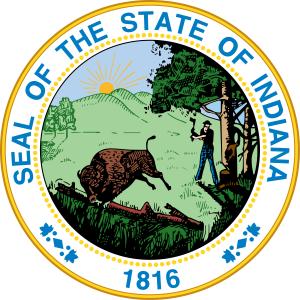 A federal district court held that under comity principles, Indiana state court is a more appropriate venue for a putative class action brought by three Indiana municipalities seeking to impose franchise fees on a group of online video providers. Order, City of Fishers v. Netflix, Inc. No. 1:20-cv-02351-JMS-MPB (S.D. Ind. Nov. 18, 2020). The federal district court remanded the case to the Marion Superior Court, where it was originally filed.
A federal district court held that under comity principles, Indiana state court is a more appropriate venue for a putative class action brought by three Indiana municipalities seeking to impose franchise fees on a group of online video providers. Order, City of Fishers v. Netflix, Inc. No. 1:20-cv-02351-JMS-MPB (S.D. Ind. Nov. 18, 2020). The federal district court remanded the case to the Marion Superior Court, where it was originally filed.
Articles Posted in Issues
COST’s 51st Annual Meeting
Pillsbury SALT partner Annie Huang will present during COST’s 51st Annual Meeting on October 22.  Partnering with Robert Johnson (Crowe), Eran Liron (PwC) and Ruben Sislyan (Greenberg Traurig), Annie will present “Market Sourcing through Alternative Apportionment or Creative Characterizations of Activity,” moderated by Stephanie Do (COST). Few issues have created greater angst or spawned more litigation than state efforts to impose market sourcing of services on out-of-state taxpayers. As the service sector has grown, so has single-sales factor apportionment, which often makes market sourcing an all-or-nothing proposition to both states and taxpayers. Although many states have modified UDITPA to move from COP to market sourcing, many have not and are using tools such as Sec. 482, forced combination, and creative characterizations of benefits received. And states that changed are trying to stanch the revenue outflow from in-state service companies as well. This session will provide an overview and discussion of some of the more bizarre and inconsistent approaches taken by states on this issue.
Partnering with Robert Johnson (Crowe), Eran Liron (PwC) and Ruben Sislyan (Greenberg Traurig), Annie will present “Market Sourcing through Alternative Apportionment or Creative Characterizations of Activity,” moderated by Stephanie Do (COST). Few issues have created greater angst or spawned more litigation than state efforts to impose market sourcing of services on out-of-state taxpayers. As the service sector has grown, so has single-sales factor apportionment, which often makes market sourcing an all-or-nothing proposition to both states and taxpayers. Although many states have modified UDITPA to move from COP to market sourcing, many have not and are using tools such as Sec. 482, forced combination, and creative characterizations of benefits received. And states that changed are trying to stanch the revenue outflow from in-state service companies as well. This session will provide an overview and discussion of some of the more bizarre and inconsistent approaches taken by states on this issue.
COST’s 51st Annual Meeting offers sessions of interest to every state tax professional in industry, whether a COST member or otherwise, as well as in the consulting, accounting and legal profession. The program covers all types of state and local taxes that business taxpayers are confronted with today and provides updates on key SALT issues.
For more information and to register, please click here.
CalTax’s Splitting the Property Tax Roll Webinar Series
 Pillsbury partners Breann Robowski and Craig Becker will present during CalTax’s Splitting the Property Tax Roll webinar series in October.
Pillsbury partners Breann Robowski and Craig Becker will present during CalTax’s Splitting the Property Tax Roll webinar series in October.
Splitting the Property Tax Roll, a webinar series on the Technical Provisions of Proposition 15, will feature a new episode every Tuesday in October.
Breann will present during Episode 1, “California’s Property Tax System” on October 6. The speakers will discuss what California’s property tax system was like prior to the passage of Proposition 13 in 1978, provide an overview of the current property tax structure and how the measure has evolved over time, and discuss the provisions of Proposition 15.
Craig will present during Episode 2, “Ready, Set, Split Roll: The Impact of Proposition 15″ on October 13. This webinar will cover the economic impact of Proposition 15, including how the measure would impact consumers and private-sector employment. Speakers will cover how to interpret Proposition 15, drafting flaws, and how the measure would have specific impact on certain industries, including agricultural properties and vineyards, energy, and telecommunications.
For more information, please visit the event page.
CalTax members may find a recording of Breann’s presentation here and Craig’s presentation here.
Cold Class Action: Federal Judge in Alaska Rules State and Local Sales Tax Class Action Survives Motion to Dismiss/Strike
In Alaska, a state and local sales tax class action survived a motion to dismiss and motion to strike class allegations after a federal judge determined the plaintiff’s alleged claims were plausible. In Van v. LLR, INC., d/b/a LuLaRoe et al., the plaintiff—an Alaska resident and customer of the defendant retailer—alleged she was improperly charged sales tax on clothing purchased from the out-of-state retailer’s “remote consultants” and shipped to her residence in Anchorage, Alaska. With no state sales tax in Alaska and few local sales taxes, the plaintiff claimed defendant retailer unlawfully collected sales tax on transactions shipped to Alaska for over a year.
New York Trial Court Finds State’s Attempt to Tax Storage Services Performed Entirely in New Jersey Arbitrary and Capricious
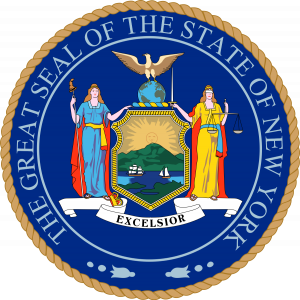 A New York trial court held that charges for storage services rendered in New Jersey were not subject to New York sales tax despite the fact that the property was originally picked up in New York. Vital Records, Inc. v. New York State Dep’t of Taxation & Finance, No. 900088-19 (N.Y. Sup. Ct. Albany Cty. Aug. 19, 2020). The case was not heard by the New York State Division of Tax Appeals, which is the typical venue for state tax disputes. Instead, the vendor brought an action against the New York State Department of Taxation and Finance (“Department”) and its executive deputy commissioner in a New York Supreme Court (trial court) seeking declaratory, injunctive, and other relief.
A New York trial court held that charges for storage services rendered in New Jersey were not subject to New York sales tax despite the fact that the property was originally picked up in New York. Vital Records, Inc. v. New York State Dep’t of Taxation & Finance, No. 900088-19 (N.Y. Sup. Ct. Albany Cty. Aug. 19, 2020). The case was not heard by the New York State Division of Tax Appeals, which is the typical venue for state tax disputes. Instead, the vendor brought an action against the New York State Department of Taxation and Finance (“Department”) and its executive deputy commissioner in a New York Supreme Court (trial court) seeking declaratory, injunctive, and other relief.
Council on State Taxation’s Pacific Southwest Regional State Tax Webinar
 Pillsbury partners Jeff Vesely and Annie Huang will present “Market-Based Sourcing Issues in the Southwestern States with a Focus on California” during COST’s Pacific Southwest Regional State Tax Webinar on August 27.
Pillsbury partners Jeff Vesely and Annie Huang will present “Market-Based Sourcing Issues in the Southwestern States with a Focus on California” during COST’s Pacific Southwest Regional State Tax Webinar on August 27.
Council on State Taxation’s 2020 State and Local Tax Webinar for Technology Companies
 COST’s 2020 conference for technology companies will provide 6 hours of topics which will cover the key state and local tax issues that technology companies (both start-up and established) are facing over the span of 3 days. Continue Reading ›
COST’s 2020 conference for technology companies will provide 6 hours of topics which will cover the key state and local tax issues that technology companies (both start-up and established) are facing over the span of 3 days. Continue Reading ›
D.C. Council Abandons Digital Advertising Sales Tax Proposal
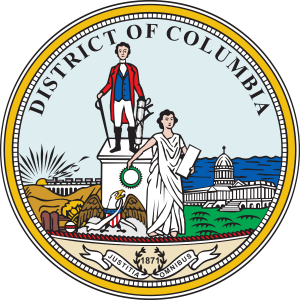 The District of Columbia Council finalized the 2021 fiscal year budget yesterday, which removed the recently enacted digital advertising tax. The Council’s July 28 vote formalized the elimination of a proposed 3% sales tax on gross receipts from traditional and digital advertising services and from the sale of personal information (e.g., IP addresses, , names, phone numbers, biometric data etc.). The proposal defined “digital advertising services” as “advertising services related to advertisements displayed on a digital interface, including advertisements in the form of banner advertising, search engine advertising, interstitial advertising, or other comparable advertising.” “Digital interface” was defined as “any combination of hardware and software that an individual may use to access internet-based platforms such as websites, parts of websites, or applications.”
The District of Columbia Council finalized the 2021 fiscal year budget yesterday, which removed the recently enacted digital advertising tax. The Council’s July 28 vote formalized the elimination of a proposed 3% sales tax on gross receipts from traditional and digital advertising services and from the sale of personal information (e.g., IP addresses, , names, phone numbers, biometric data etc.). The proposal defined “digital advertising services” as “advertising services related to advertisements displayed on a digital interface, including advertisements in the form of banner advertising, search engine advertising, interstitial advertising, or other comparable advertising.” “Digital interface” was defined as “any combination of hardware and software that an individual may use to access internet-based platforms such as websites, parts of websites, or applications.”
California Court of Appeal Concludes Transfer Tax Not Applicable to Purchase of Realty Encumbered by Long-Term Leasehold
In 731 Market Street Owner LLC v. City and County of San Francisco 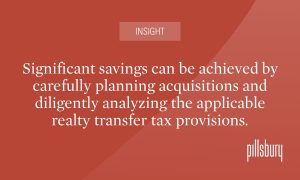 (June 18, 2020), California appellate court affirms that local realty transfer tax does not apply when leasehold has a remaining term of 35 years or more. SeeSALT authors Craig Becker, Breann Robowski, Richard Nielsen, and Robert Merten III explain.
(June 18, 2020), California appellate court affirms that local realty transfer tax does not apply when leasehold has a remaining term of 35 years or more. SeeSALT authors Craig Becker, Breann Robowski, Richard Nielsen, and Robert Merten III explain.
Read the full article here.
The Split-Roll Initiative Is Poised to Rock California’s Property Tax System
This November, California voters will decide whether commercial 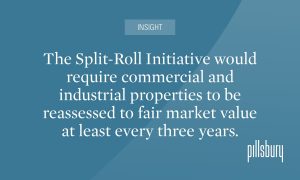 and industrial properties will lose their Proposition 13 protection against property tax reassessment. Authors Craig Becker, Richard Nielsen, and Breann Robowski explain.
and industrial properties will lose their Proposition 13 protection against property tax reassessment. Authors Craig Becker, Richard Nielsen, and Breann Robowski explain.
Read the full article here.
 SeeSALT Blog
SeeSALT Blog

